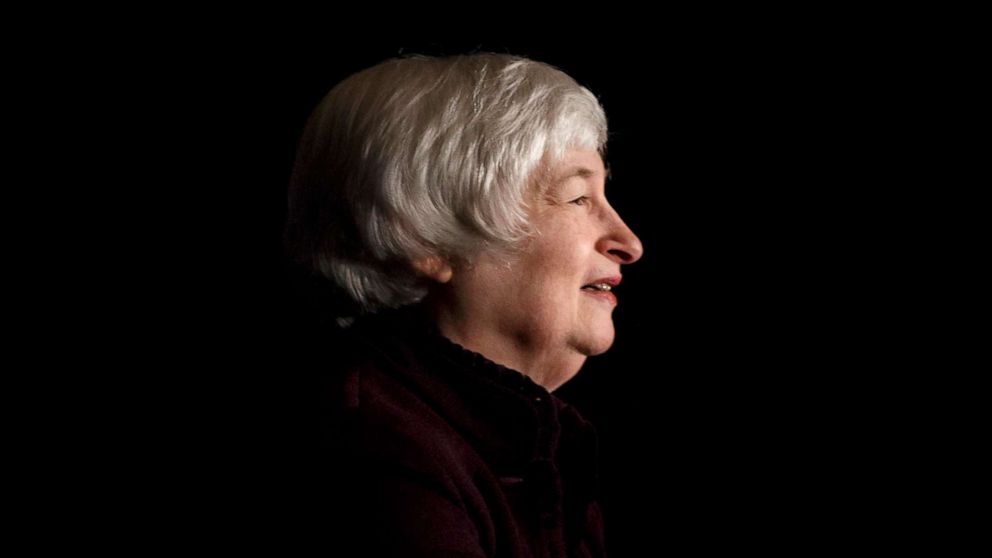财政部长珍妮特·耶伦周一在纪念已故马丁·路德·金博士的活动上发表讲话时,讨论了美国经济中仍然潜伏的系统性不平等,以及她所在的部门“需要做些什么来缩小种族财富差距”。
“从重建到吉姆·克劳,直到今天,我们的经济从未公平地为美国黑人服务——或者,真的,为任何肤色的美国人服务,”这位财政部长在阿尔·夏普顿牧师的国家行动网络纪念金的一生和遗产的年度早餐会上说。
在本该是他93岁生日的日子里,耶伦反思了这位已故民权偶像——通常被称为“我们国家的道德领袖”——是如何知道“经济不公正与他反对的更大的不公正联系在一起的。”
自去年1月上任以来,耶伦表示,她和她的团队一直在努力“确保无论是形象化的正义银行,还是任何字面上的经济机构,都不会不为有色人种服务。”
她表示,财政部最近完成了第一次股权审查,“放眼整个部门,问:我们的业务在哪里没有达到应有的包容性?”

J.斯科特·阿普尔怀特/美联社文件
美联储主席珍妮特·耶伦。
耶伦补充说,他们还聘请了该部门有史以来第一位种族平等顾问,并寻求聘请“财政部历史上最多样化的领导团队。”她补充说,财政部正在向社区发展金融机构和少数族裔存款机构注入约90亿美元,这些机构寻求为金融部门历来忽视的人和地方服务。
耶伦说:“当然,没有一个项目和一个政府能够兑现金博士对我们国家的希望和抱负。"财政部还需要做更多的工作来缩小种族财富差距。"
数据支持耶伦的观点,即仍有大量工作需要完成基于种族的经济差异在过去的一年里,由于新冠肺炎疫情对有色人种社区造成了不成比例的伤害,其中许多问题变得更加严重。
专家说,美国奴隶制的阴险遗产,以及随后几十年的种族主义政策,导致了今天仍然存在的系统性经济问题,如种族财富差距。布鲁金斯学会报告去年发表的研究报告称,在美国,典型白人家庭的净资产(17.1万美元)比黑人家庭(1.715万美元)高出近10倍,研究人员表示,黑人和白人家庭之间的财富差距“揭示了累积的不平等和歧视的影响,以及可以追溯到这个国家成立之初的权力和机会差异。”
来自美联储的另一份最新数据显示,2019年,典型的白人家庭的财富是典型的黑人家庭的8倍,是典型的西班牙裔家庭的5倍。美联储的数据集显示,2019年,美国白人家庭的财富中位数为18.82万美元,黑人家庭的财富中位数约为2.41万美元。值得注意的是,这一数据是在新冠肺炎·疫情狂怒冲击黑人和拉丁美洲人社区之前发布的,在许多情况下扩大了富人和穷人之间的差距。
央行研究人员表示,财富的继承和代际赠予,以及家庭对子女的投资(如支付大学学费)是子女积累财富能力的一大因素。
“由于这些原因,财富(或缺乏财富)可能会持续几代人,并反映了住房、教育和劳动力市场中的歧视或不平等待遇的遗留问题,”美联储研究人员说书写
US economy 'has never worked fairly for Black Americans,’ Treasury chief says
Treasury Secretary Janet Yellen discussed the systemic inequities still lurking in the U.S. economy and the work her department "needs to do to narrow the racial wealth divide," during remarks Monday at an event honoring the late Dr. Martin Luther King, Jr.
"From Reconstruction, to Jim Crow, to the present day, our economy has never worked fairly for Black Americans -- or, really, for any American of color," the Treasury chief said during the Rev. Al Sharpton's National Action Network's annual breakfast honoring the life and legacy of King.
On what would have been his 93rd birthday, Yellen reflected on how the late civil rights icon -- often referred to as the "moral leader of our nation" -- knew that, "economic injustice was bound up in the larger injustice he fought against."
Since taking office last January, Yellen said that she and her team have worked hard to "ensure that neither the figurative bank of justice -- nor any literal economic institution -- fails to work for people of color."
She said the Treasury has recently completed its first equity review, "looking across the department and asking: Where are our operations not as inclusive as they should be?"
Yellen added that they have also hired the department's first-ever counselor on racial equity and sought to hire the "most diverse leadership team in Treasury's history." She added that the Treasury was injecting some $9 billion into Community Development Financial Institutions and Minority Depository Institutions that seek to serve people and places that the financial sector historically has left out.
"Of course, no one program and no one administration can make good on the hopes and aspirations that Dr. King had for our country," Yellen said. "There is still much more work Treasury needs to do to narrow the racial wealth divide."
Data backs up Yellen's sentiments that there is still vast work needed to be done to addressrace-based economic disparities-- many of which were heightened over the past year as the COVID-19 pandemic took a disproportionate toll on communities of color.
The insidious legacy of slavery in the U.S., as well as decades of racist policies that followed, results in systemic economic issues that are still present today -- such as the racial wealth gap, experts said. A Brookings Institutionreportpublished last year said that the net worth of a typical white family ($171,000) is nearly 10 times greater than that of a Black family ($17,150) in America, with researchers saying the gaps in wealth between Black and white households "reveal the effects of accumulated inequality and discrimination, as well as differences in power and opportunity that can be traced back to this nation’s inception."
Separate and more-recent data from the Federal Reserve indicated that in 2019, the typical White family has eight times the wealth of the typical Black family and five times the wealth of the typical Hispanic family. The Fed dataset indicates that in 2019, the median wealth of a white family in the U.S. was $188,200 and the median wealth of a Black family was some $24,100. The data notably is before the COVID-19 pandemic hit Black and Latino communities with inordinate furor and in many cases widened the gap between the haves and have-nots.
The central bank researchers said inheritance and inter-generational gifting of wealth, as well as investments families make in their children (such as paying for college tuition) are a big factor in their children's ability to accumulate wealth.
"For these reasons, wealth (or a lack thereof) can persist across generations and reflect, among other factors, a legacy of discrimination or unequal treatment in housing, education, and labor markets," the Fed researcherswrote.






